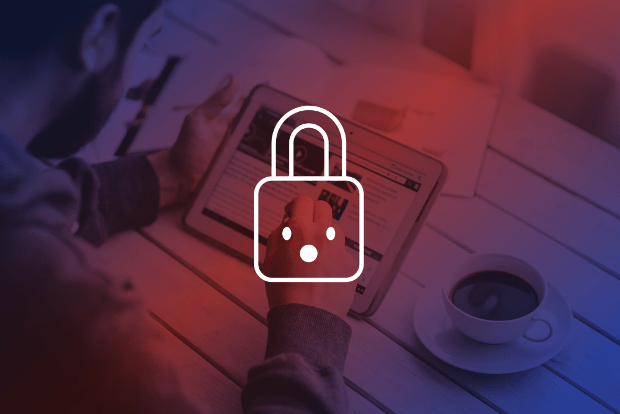
Virtual Private Networks have been in use since 1996, when Microsoft’s
Gurdeep Singh-Pall created a method for implementing virtual private networks and
called it Point-to-Point Tunneling Protocol (PPTP). The idea behind this
invention was to provide people with secure internet connections. Since 1996,
the VPN technology has come a long way, becoming more refined and diverse. New
VPNs have been designed over the years, though some people still continue
doubting their usefulness or feel unsure why they need to install this software
in the first place.
Confusion over the Virtual Private Network platform and its usefulness is
exacerbated by its apparent similarity to antiviruses. Many people still think
that VPNs and antiviruses are either interchangeable or exclude each other.
People still ask why they need both of these kinds of software, wondering if
one of them will be sufficient and which of them guarantees better protection.
This article addresses the common confusion between VPNs and antiviruses. In
what follows, we dwell on differences between the two platforms. We also
explain how viruses can wreak havoc with your computer and what antiviruses exist
to protect your electronic devices from malfunctioning. If you are in search of
more specific information about antiviruses, you can read an article about antiviruses for
iPhone that focuses on the best of them on offer today.
Viruses We Should Fear
The internet is a brave new world with lurking dangers. These dangers await
us everywhere, taking any shape, guise, and size. Beware of various types of
malware that imperil the security of your computers. Your electronic devices
can be infected by such malicious software as adware designed to destroy your
browser. They are also exposed to spyware meant to steal covert information
from you. Equally perilous to your computer’s well-being are different viruses.
The most notorious of the viruses infecting our computers are Trojans,
worms, and the DNS attacks. Although equally nasty, these viruses hit your
computer differently. As their name suggests, Trojans disguise themselves as
friendly apps but carry weapons of mass destructions with them. Remember how the
equestrian gift of the Greek Army led to the sack of Troy? When the wooden
horse was ushered into Troy, the armed Greek warriors sprung from its body,
massacred the Trojans, and burned the city down. The virus Trojan behaves in a
similar manner. It is a seemingly amicable application that, once you let it
in, kills off your computer and leaves your programs in ruins.
There are also computer worms. In nature, ribbon worms have a spectacular
ability to regrowth brains and entire heads, as scientists have recently
discovered. Malware computer programs called worms also have the regenerative
power. Once they get inside your computer, they start replicating themselves
and then spread to other computers. In contrast to natural worms, whose power
to regenerate their heads is life-saving, computer worms threaten the life of
your computer. They can harm the network by consuming bandwidth and corrupt
files you store on your PC. Worms can also slow down the processing of your
electronic device. In the worst cases, the virus can destroy your hardware.
Trojans and worms are not the only scary creatures haunting the internet, however. Your computer can be attacked while you are browsing the internet or downloading. This is called the DNS attack. When you are surfing the internet, hackers gain access to your server by hurting soft spots in the Domain Name System. Many people have experienced the most common form of the DNS attack – a Denial of Service attack abbreviated as DoS. During this attack, your computer becomes
disconnected from the internet. In the worst-case scenario, such
disconnection can destroy your computer. If your computer does not crush, you
still can expect unpleasant surprises caused by the DoS attack. The data from
your computer can be harvested or transmitted to a governmental surveillance.
Your identity can be stolen. You can be banned from browsing certain websites.
Spam and scam emails can enter your Inbox under the guise of important
messages. If opened, these emails can permanently damage your documents and
files.
Antivirus and VPN Rescue Rangers
You can be saved from the dangers awaiting you on the internet by a pair of
the brave superheroes: Antivirus and the VPN. But note that these two programs
are neither identical nor interchangeable. They protect you from different
disasters.
Antivirus software installed in your computer will scan it for the danger to
which you expose yourself every time you open an email, file, website, or new
application and in doing so introduce a new code in its processor. The
antivirus will compare your running programs to all existing types of malicious
software. It will evaluate all activities inside your computer and will make
sure that nothing suspicious is happening there. If your antivirus finds a
suspicious code, it will automatically remove the threat.
A Virtual Private Network lets you surf the internet anonymously and makes
you invisible to hackers and even your internet providers. You become invisible
because the VPN hides your IP address and connects you to a secure private
server. Equipped with the new IP address, you will also be able to access
various blocked websites, be it Netflix American library or, if you are
travelling in China, Amazon and Google, long banned by its cyber security. The
VPN also protects your identity and the data you transmit through the internet.
By encrypting your data, the VPN makes it incomprehensible to hackers or even
to such totalitarian governments as those of China and the UAE that imprison
violators of their internet laws.
It must be clear by now that antiviruses and VPNs save you from different
types of danger and should be used together for stronger protection of your
data. A combination of antiviruses with the VPN will give you the best
protection against perils abounding out there on the internet.










